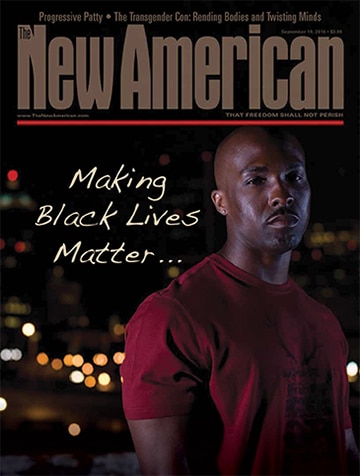American Principles
Could a Planned Economy Ever Succeed?
Could a planned economy, where the government determines who has how much wealth and what wages and prices ought to be, ever succeed?
To answer this question, we need to consider what wealth is and where it comes from. Simply put, wealth is anything that has value in economic exchange. But what determines value? It has been claimed that value is somehow inherent and therefore measurable by some impartial and independent standard, in the same way that we might measure a distance, a weight, or a temperature. One approach to “measuring” value is the “labor theory of value,” originally popularized by two of the fathers of economic theory, Adam Smith and David Ricardo. This theory supposes that the more labor is required to produce something, the more it will be worth. While this theory has fallen out of favor among most modern economists, it continues to be part of the foundation of Marxist economics because it implies that value can be tabulated by well-informed experts. If a would-be economic planner knows how much labor is expended in the production of a given item, he can then measure its value and plan for its production.
If this were true, it is at least imaginable that a sufficiently well-informed board of economic planners could calculate the values of all goods and services in production and decide how much of each should be produced and at what cost. Nor is this a completely hypothetical premise; for the past century, governments all over the world, including our own, have established wage and price controls, set production goals and quotas, and in general tried to manage their respective economies into higher productivity and efficiency.
And every one of these efforts has failed, often calamitously. Minimum wages are raised — only to spur higher unemployment. Prices are fixed — only to produce chronic shortages. Production goals are set — only to result in shuttered factories, fallow fields, and inferior products. The ongoing crisis in Venezuela, a once-wealthy country whose economy has collapsed under years of socialist-inspired mismanagement, is but the latest example. The chronic economic malaise in an American economy that refuses to respond to government “stimulus” years after the Great Recession is another poignant instance of the failure of government planning.
Those who defend government planning and wealth redistribution always insist that their failures are due either to inexpert planners or to sabotage by their political foes. Never does it occur to them that the very notion of planned economics is inherently unworkable, no matter how compliant the electorate and how expert the planners.
But the truth is that not only is a planned economy — wealth redistribution by another name — an impossibility, it is a logical absurdity. This is because, as Ludwig von Mises and his fellow Austrian economists showed a century ago, it is impossible to measure value. As a little careful thought will reveal, valuation is subjective; like beauty, it is entirely in the eye of the beholder. One man’s treasure is another man’s trifle. Where one person loves a particular work of art and will pay a fortune to possess it, another would not accept it as a gift. One person desires this type of car, or house, or job, and another person something entirely different. And this applies as well to life’s most essential things — food, clothing, shelter, and the like.
There is, as it has often been said, no accounting for taste. And this is literally true where economic valuation is concerned. Values of things can no more be tabulated than can emotions.
Yet economic exchange still takes place. How is this possible, if valuation is subjective? The answer is that people make exchanges based on the relative value of things as they perceive them individually. Suppose, for example, that I possess a car that I wish to sell for $5,000, and I find someone who is willing to pay that price. Does this mean that my car is “worth” $5,000? No. It means that I value the $5,000 more than the car, and the person who buys the car values it more than the $5,000. Otherwise, why would I be willing to sell the car for $5,000, and why would the buyer be willing to pay that amount? In actuality, unless both the buyer and seller believe they are benefiting from the deal, no exchange would take place.
For another prospective buyer, however, my car may be worth less than $5,000, so he will not be willing to make the exchange I am looking for. In other words, all exchange is based on relative valuation; “value” per se is an event, not an immutable fact. Because of this, neither government planners nor anyone else but the participants in an economic exchange can establish value.
Of course, in our modern society obsessed with measurements and determinacy, not only governments but also private merchants constantly try to create the illusion of inherent value. Thus, says the merchant, the price of article x is such and such; that is its worth, and it cannot be changed. But in time, if no one is willing to purchase at that price, the merchant offers people a “bargain,” by selling it for “less than it’s worth.” But all such verbiage is fiction. In reality, an article for sale is worth what a buyer and a seller agree it is at the time of the transaction. Haggling and bargaining are, in fact, the reality of economic valuation, even if pricing changes gradually.
Nor is a price an impartial measure. It is merely an amount of another commodity (money) for which we are willing to exchange a given article.
Thus there is in reality only one type of economy, in any rational sense of the word: A free market, in which buyers and sellers are free to haggle and create value in acts of voluntary exchange, is the only way that an economy can function. “Planned economies” only work to the degree that market exchange is allowed to operate despite the efforts of the government to interfere. When free exchange is utterly stifled, universal impoverishment is the result.
Wealth redistribution, and, indeed, all forms of centralized economic planning, will end up destroying all wealth and ruining all economic activity. The only possible way to ensure a healthy economy and an equitable distribution of wealth is to allow the market to operate freely.



